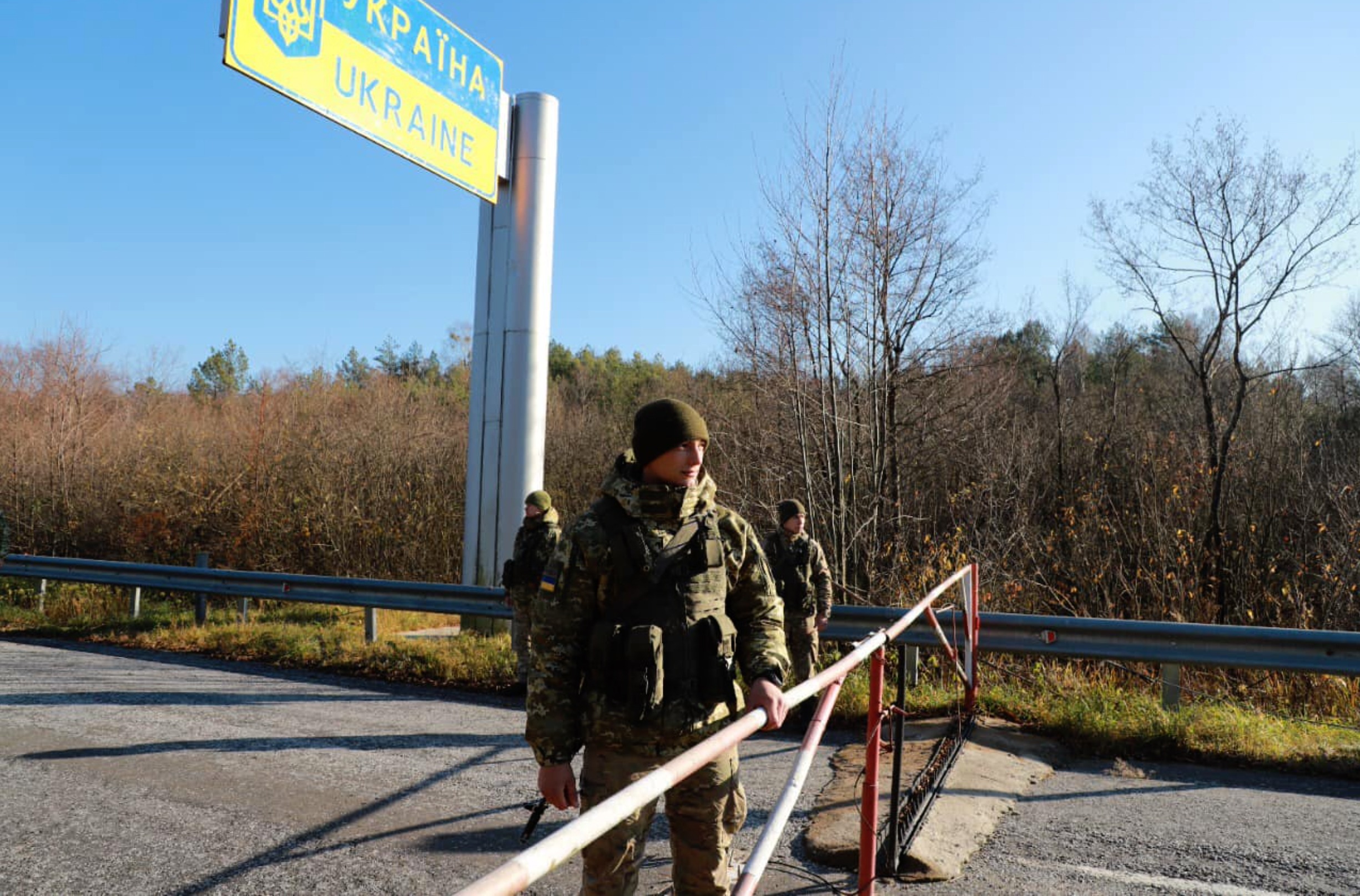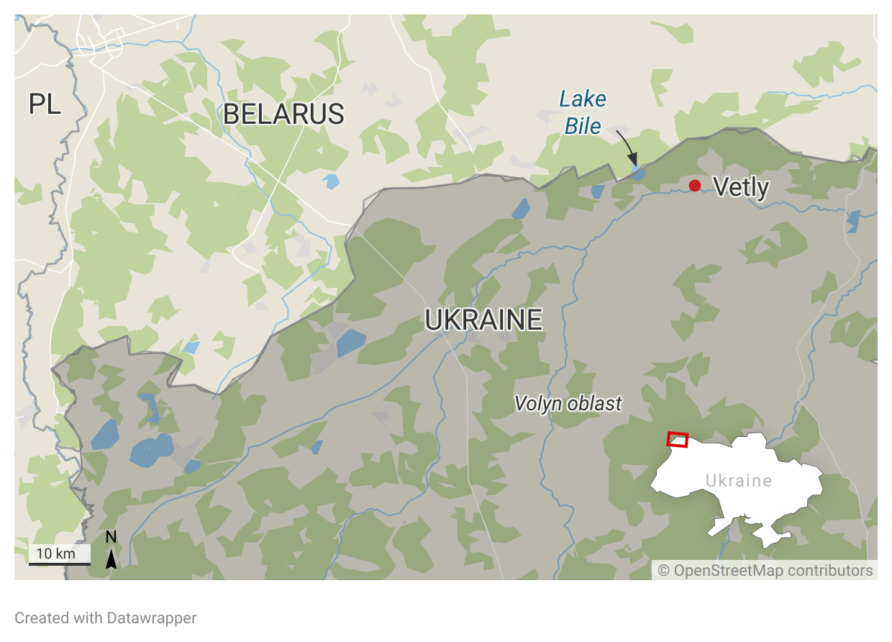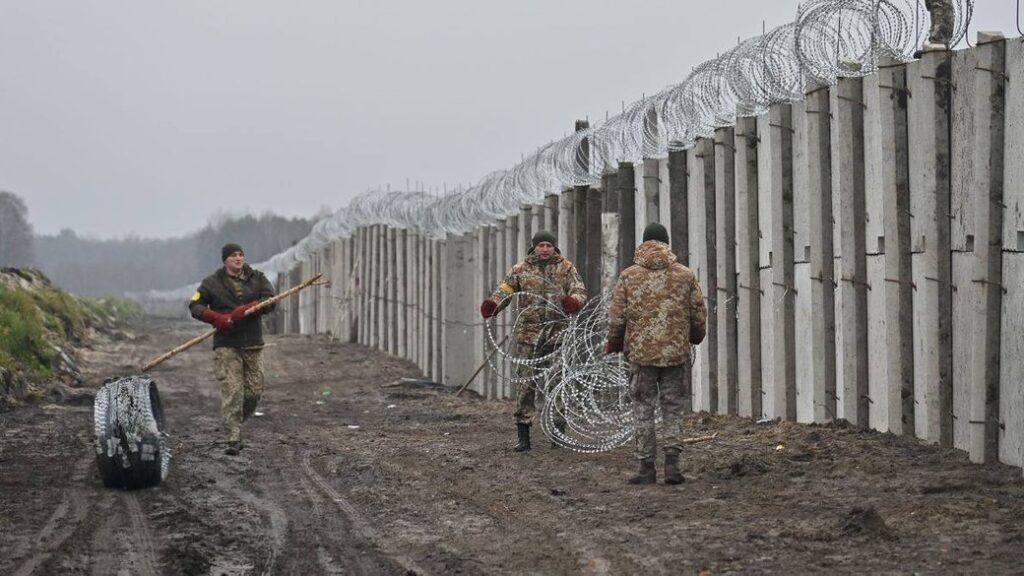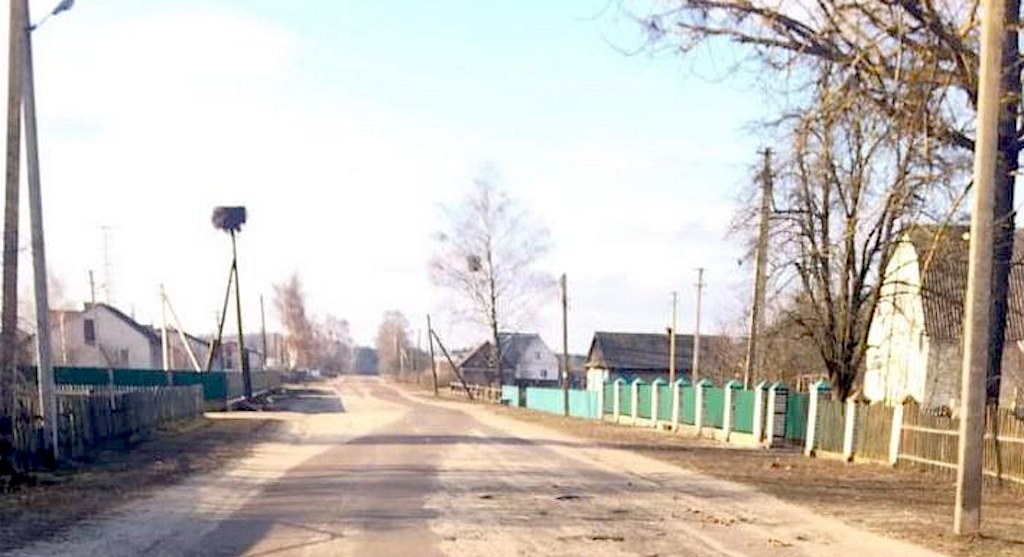‘We lived another day and thank God’: a Ukrainian border village faces the threat of invasion from Belarus

Belarus is actively assisting Russia in its war against Ukraine. At the very beginning of the full-scale invasion, some of the Russian troops came from Belarus. The first Russian missiles to hit Ukrainian cities were also launched from Belarus. The Russians seized parts of Kyiv, Chernihiv and Sumy regions, near the border. The area was later retaken by the Ukrainian armed forces, but it remains in danger. The border village of Vetly, in the Volyn oblast (region), is in this zone.

The Volyn region is located in the northwest corner of Ukraine. It borders Polandin the west and the Brest region of Belarus in the north.
The village of Vetly is one of the settlements in this district that borders Russia’s ally. How are its residents coping with their changed lives?
Vetly, like all other towns and villages in this region of Ukraine, is constantly bracing for an assault from the territory of Vladimir Putin‘s ally next door. There are good reasons for this. Following the unsuccessful rebellion of Wagner PMC leader Yevgeny Prigozhin in June 2023, Aleksandr Lukashenka invited his mercenaries to set up their camps in Belarus.
At the end of June 2023, the Belarusian dictator said that “most” of the Russian nuclear weapons that were planned to be moved to Belarus were already there.
This was despite Lukashenka’s claims that his troops do not pose a threat to Ukraine. The two countries’ supposed joint military exercises allow Moscow to keep its troops in Belarus, maintaining the pressure on Ukraine and extending the front line.
On 1 December, President Zelensky announced that the building of fortifications from Avdiivka to Volyn should be accelerated.
On 14 December, Belarus resumed joint exercises with the Russian armed forces. The manoeuvres began on 29 April 2022 and are taking place near the Ukrainian border. They have now lasted 86 weeks.
Locals living near the Belarusian border say they regularly hear enemy aircraft flying nearby. They admit that they are scared. Nobody knows what the enemy’s plans are.
Serhiy Naiev, Ukraine’s commander of joint forces, stressed that the Ukrainian military is defending the border with Belarus. He added that in the event of a threat, the general staff would redeploy forces and equipment to the appropriate areas.
Vetly is the most remote village in the Volyn region. The border with Belarus is about 10 kilometres away through forests and swamp.
Previously, the international border in this area was somewhat informal. The proper demarcation process was only completed last year. Today, on the Ukrainian side, the border is mined and fortified with a barbed-wire fence, defensive ditches and ramparts. Soldiers ensure the safety of the locals.

The first days of the war in Vetly
Local residents say that they were very scared when the war broke out in February 2022. Some left, while others stayed to fight.
“In the early days of the war, local residents actively helped the military”, says local resident Nadiya Martyniuk. “They dug trenches, gathered earth in bags, made dugouts, helped build fortifications, and set up checkpoints. Everyone was running around and helping. Girls would make camouflage nets and candles for the trenches. On the very first day, no one knew what to do. Men started organising a local militia, patrolling the streets at night in groups, monitoring compliance with the blackout.”.
Another resident, Valentyna Petrivna, recounts: “Now we’ve moved on a bit, but in the early days we used to stay in the cellars and didn’t spend the night in the house. We would close up the house and run to the cellar in the middle of the night and sleep there. But you can’t stay there for long because it’s cold. We had everything. But still, I feel different than before.”
Berries and mushrooms: another collateral of war
Before the war, many people in this region lived by selling blueberries and mushrooms they picked in the forests. Some customers were tourists who came to the famous Lake Bile – the White Lake.
The lake is located right on the border of Ukraine and Belarus. There were also those who went to work in neighbouring Poland. But the war changed everything.

Nadiya Martyniuk says that today everything has changed dramatically. Prices for wild berries have fallen, and the forests have become dangerous.
“We go to the forest to pick mushrooms and berries, but only where it is not mined”, she explains. “Because most of the places where everyone used to pick them are now mined. People don’t go there, they are scared and don’t want to risk it. Wherever the forest and houses are close, we used to go picking.”
She adds: “Last year, people tried to go to the forest to earn some money, but the price of berries was not high. And this year the prices were even lower, even though the berries were better than last year. Buyers say that all the freezers are full of last year’s berries. No one is buying them abroad, and Ukraine doesn’t need that many. Last year, we got 60 hryvnias [€1.44] for a kilo of blueberries. This year, they were 35 hryvnias [€0.85] for a kilo. What were people supposed to do?”
How Ukrainians live in the hinterland
“We don’t have much work here”, pursues Nadiya Martyniuk. “And when the war started, many young people left, of course. Some came back and some did not. Most of the locals here work at the hospital in Liubeshiv, or at the school, or in agriculture. But people always need money. They need to take their children to school, dress them. And now it’s winter. Where can you earn money? So people go to the forest in the summer. Many locals have planted raspberries, but this year the price was low. So it’s not easy to earn a penny now.”
Locals say that they used to have a lot of tourists from Lutsk, Kyiv, other cities and countries. They would come with tents and buy various delicacies from the locals. But that was before the war. Now the lake area is overgrown and wild. It is mined because it is right on the border.

Nadiya laments the lost opportunities of this former Ukrainian tourist region: “The shoreline and the road to Lake Bile are mined. No one swims or fishes there any more. Border guards make sure of this, and turn back everyone who goes there. It was mined at the very beginning of the war. And now the mined lake is freezing, so ice falls on the mines and they go off by themselves. Both at night and during the day.”
Although most locals are afraid and avoid mined areas, some people go to the mined area despite the strict ban and warnings from the military and border guards.
“We are told not to go into the forest”, says Nadiya. “There are certain areas where you can and cannot walk. The border guards do not let anyone cross . They have patrols, they walk around the forest, warning people. But although people are told that they cannot go, they go anyway. They say that the ban is stopping them from earning money.”
Will the Belarusians come?
In the border regions of Ukraine, there is a lot of discussion among local residents about the prospect of a Russian attack from Belarus.
“At first, a lot of people moved away”, recalls Nadiya. “It was thought that the local Belarusians would leave the region. But on the other hand, there are many Ukrainians living over there [on the other side of the border]. I don’t think Ukrainians will attack us, but everyone is afraid, because who knows. Maybe they will, but at this point I don’t think so. Now people have become used to the situation and calmed down, but in the early days it was very scary.’

She adds: “People once told me that every morning in the summer we could hear the Belarusians making a noise in the area of Lake Bile. Everyone here was scared. Nobody understood what that sound was. I don’t know whether it was military exercises or the collective farms working. But at that time we were in such a state that we were afraid of every loud sound.”
In the northern districts of Volyn, people have been watching Belarusian television and listening to the radio for generations. The Ukrainian state was unable to provide analogue broadcasting of national channels in these areas.
“No, we don’t have Belarusian television, but we can get the radio”, explains Nadiya Martyniuk.
Ukrainians living on different sides of the border
After the collapse of the Soviet Union and the decline of collective farms, many Vetly villagers went to work in Belarus and never returned. They started families there and settled down. As a result, the locals have many relatives on the other side of the border.
“Even today, some people keep in touch with their relatives who live there”, says Nadiya. “This is how life has worked out. We used to visit them often, and now we want to talk to them again. But today they won’t let anyone in, the border is closed. People say that their relatives from Belarus are afraid to discuss the war, and that when they start talking about it, something happens to the connection. Who knows, maybe they are being bugged over there. That’s why everyone tries to talk only about family and children.”
“Going straight through the forest, it’s about 7 kilometres to Belarus. We used to go out to the garden and call our relatives from Belarus, because in some places we could catch their cellphone network. Even now, in some places, we receive SMS messages saying ‘Welcome to Belarus’. And when we return home, we get other messages: ‘Welcome back to Ukraine’. This is how we live now.” Locals joke that it is a form of propaganda.
A life without plans for the future
Local villagers say that their lives have now changed forever. It will never be the same again.
“We used to live in peace”, says Nadiya Martyniuk. “But now even the people have changed. Everyone is different. No one plans anything in advance any more. Another day passes and it’s, ‘Thank God!’ In peacetime, everyone had plans. When we were told that there would be a war, we kept thinking, ‘Who will attack?’ Nobody knows if those Belarusians will attack. Nobody believes it, but still…”
Valentyna Petrivna Andreeva, another resident of Vetly village, agrees. She says that people are still scared, and that many men from the village have gone to fight at the front. That’s why all people want is peace.
“My whole life has changed”, says this pensioner. “People used to be cheerful, but now we live in fear and that’s it. It’s so scary. Young people used to be building things, making lots of plans, but now no one is building anything. It’s a completely different life now. Our village used to be moving forward. Young people would get married and start building a house right away. The guys would go off somewhere to work.”
“I used to talk to my relatives in Belarus on the phone a lot, we used to visit them often”, says Valentyna Petrivna. “But now we don’t. They don’t call and we don’t either. In the early days, they didn’t believe that the war had started, but now they don’t want to talk at all. We do not call or write. It is what it is.”



